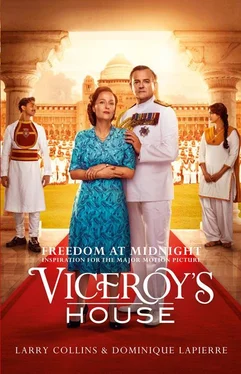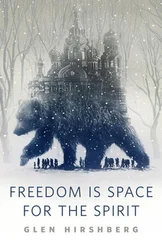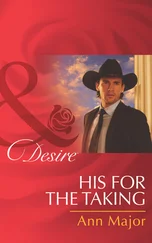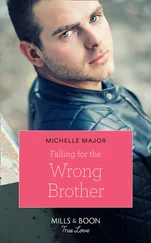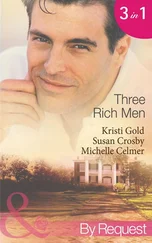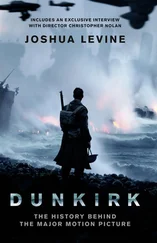In August 1979, he prepared, as he did every summer, to spend a family holiday at his castle, Classiebawn, in Ireland. The day before he left he spoke on the phone to one of the authors of this book.
‘Be careful up there, Lord Louis,’ the author warned, ‘you’re an awfully tempting target for those whackos of the IRA.’
‘My dear Larry,’ came the reply, ‘once again you’re revealing how little you know of these matters. The Irish are well aware of my feelings on the Irish question. I am in no danger over there whatsoever.’
A fortnight later, together with the mother of his son-in-law Lord John Brabourne and a young child, he was murdered by an IRA assassin’s bomb hidden in his motor launch as he was setting out to sea for a morning sail.
He would have had nothing but utter contempt for people who would murder an elderly woman and a child. But himself? He died swiftly, afloat upon those endless seas which had played such an important role in his own and his father’s life. Had his death brought some small measure of wisdom to the Republicans and Loyalists killing and murdering in Northern Ireland, might he not have considered it a worthwhile final act, one not incomparable with the death of the man he so admired, Mahatma Gandhi?
Often during our work on Freedom at Midnight he had declared, ‘How can we here in the West possibly blame Hindus and Moslems for killing each other in India when in Northern Ireland we see people of the same basic stock, people who worship the same Resurrected Saviour, slaughtering each other?’
Alas, almost two decades after his death, his sacrifice and that of all the others which have followed it have not succeeded in implanting among the peoples of Northern Ireland a semblance of the wisdom Gandhi’s death bequeathed to his countrymen and women.
LARRY COLLINS
DOMINIQUE LAPIERRE
December 1996
The rude arch of yellow basalt thrusts its haughty form into the city’s skyline just above a little promontory lapped by the waters of the Bay of Bombay. The Bay’s gentle waves barely stir the sullen green sludge of debris and garbage that encircles the concrete apron sloping down from the arch to the water’s edge. A strange world mingles there in the shadows cast by its soaring span: snake charmers and fortune tellers, beggars and tourists, dishevelled hippies lost in a torpor of sloth and drug, the destitute and dying of a cluttered metropolis. Barely a head is raised to contemplate the inscription, still clearly legible, stretched along the summit: ‘Erected to commemorate the landing in India of their imperial majesties, George V and Queen Mary on the second of December MCMXI’.
Yet, once, that vaulting Gateway of India was the Arch of Triumph of the greatest empire the world has ever known. To generations of Britons, its massive form was the first glimpse, caught from a steamer’s deck, of the storied shores for which they had abandoned their Midlands villages and Scottish hills. Soldiers and adventurers, businessmen and administrators, they had passed through its portals, come to keep the Pax Britannica in the empire’s proudest possession, to exploit a conquered continent, to take up the White Man’s burden with the unshakable conviction that theirs was a race born to rule, and their empire an entity destined to endure.
All that seems so distant now. Today, the Gateway of India is just another pile of stone, at one with Nineveh and Tyre, a forgotten monument to an era that ended in its shadows half a century ago.
ONE
‘A Race Destined to Govern and Subdue’
London, New Year’s Day, 1947
It was the winter of a great nation’s discontent. An air of melancholia hung like a chill fog over London. Rarely, if ever, had Britain’s capital ushered in a New Year in a mood so bleak, so morose. Hardly a home in the city that festive morning could furnish enough hot water to allow a man to shave or a woman to cover the bottom of her wash-basin. Londoners had greeted the New Year in bedrooms so cold their breath had drifted on the air like puffs of smoke. Precious few of them had greeted it with a hangover. Whisky, in the places where it had been available the night before for New Year’s Eve celebrations, had cost £8 a bottle.
The streets were almost deserted. The passers-by hurrying down their pavements were grim, joyless creatures, threadbare in old uniforms or clothes barely holding together after eight years of make-do and mend. What few cars there were darted about like fugitive phantoms guiltily consuming Britain’s rare and rationed petrol. A special stench, the odour of post-war London, permeated the streets. It was the rancid smell of charred ruins drifting up like an autumn mist from thousands of bombed-out buildings.
And yet, that sad, joyless city was the capital of a conquering nation. Only seventeen months before, the British had emerged victorious from mankind’s most terrible conflict. Their achievements, their courage in adversity then, had inspired an admiration such as the world had never before accorded them.
The cost of their victory, however, had almost vanquished the British. Britain’s industry was crippled, her exchequer bankrupt, her once haughty pound sterling surviving only on injections of American and Canadian dollars, her Treasury unable to pay the staggering debt she’d run up to finance the war. Foundries and factories were closing everywhere. Over two million Britons were unemployed. Coal production was lower than it had been a decade earlier and, as a result, every day, some part of Britain was without electric power for hours.
For Londoners, the New Year beginning would be the eighth consecutive year they’d lived under severe rationing of almost every product they consumed: food, fuel, drinks, energy, shoes, clothing. ‘Starve and shiver’ had become the byword of a people who’d defeated Hitler proclaiming ‘V for Victory’ and ‘Thumbs Up’.
Only one family in fifteen had been able to find and afford a Christmas turkey for the holiday season just past. Many a child’s stocking had been empty that Christmas eve. The treasury had slapped a 100% purchase tax on toys. The word most frequently scrawled on the windows of London’s shops was ‘No’: ‘No potatoes’, ‘No logs’, ‘No coal’, ‘No cigarettes’, ‘No meat’. Indeed, the reality confronting Britain that New Year’s morning had been captured in one cruel sentence by her greatest economist. ‘We are a poor nation,’ John Maynard Keynes had told his countrymen the year before, ‘and we must learn to live accordingly.’
Yet, if Londoners did not have enough hot water that morning to make a cup of tea with which to welcome the New Year, they had something else. They could, because they were English, lay claim to a blue and gold document which would guarantee their entry to almost a quarter of the earth’s surface, a British passport. No other people in the world enjoyed such a privilege. That most extraordinary assemblage of dominions, territories, protectorates, associated states and colonies which was the British Empire, remained, on this New Year’s Day 1947, largely intact. The lives of 560 million people, Tamils and Chinese, Bushmen and Hottentots, pre-Dravidian aborigines and Melanesians, Australians and Canadians, were still influenced by the actions of those Englishmen shivering in their unheated London homes. They could, that morning, claim domain over almost three hundred pieces of the earth’s surface from entities as small and as unknown as Bird Island, Bramble Cay and Wreck Reef to great, populous stretches of Africa and Asia. Britain’s proudest boast was still true: every time Big Ben’s chimes tolled out over the ruins of Central London that New Year’s Day, at sunrise, somewhere in the British Empire, a Union Jack was riding up a flagstaff.
Читать дальше
